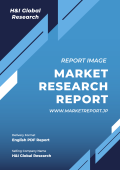| 【英語タイトル】Molluscicide Market - Growth, Trends, Covid-19 Impact, and Forecasts (2023 - 2028)
|
 | ・商品コード:MOR23MRC049
・発行会社(調査会社):Mordor Intelligence
・発行日:2023年1月23日
・ページ数:132
・レポート言語:英語
・レポート形式:PDF
・納品方法:Eメール(受注後2-3営業日)
・調査対象地域:アメリカ、カナダ、メキシコ、ドイツ、イギリス、フランス、ロシア、スペイン、中国、日本、インド、オーストラリア、ブラジル、アルゼンチン、南アフリカ
・産業分野:農業
|
◆販売価格オプション
(消費税別)
※販売価格オプションの説明
※お支払金額:換算金額(日本円)+消費税
※納期:即日〜2営業日(3日以上かかる場合は別途表記又はご連絡)
※お支払方法:納品日+5日以内に請求書を発行・送付(請求書発行日より2ヶ月以内に銀行振込、振込先:三菱UFJ銀行/H&Iグローバルリサーチ株式会社、支払期限と方法は調整可能)
|
❖ レポートの概要 ❖
Mordor Intelligence社発行の当調査レポートによると、世界の軟体動物駆除剤市場規模は、予測期間中(2022-2027年)に年平均5.1%成長すると予測されています。当レポートは、軟体動物駆除剤の世界市場を調査対象とし、イントロダクション、調査手法、エグゼクティブサマリー、市場動向、製品別(リン酸第二鉄、メタアルデヒド、メチオカルブ、ニクロサミド)分析、用途別(穀物、豆類&油糧種子、果物&野菜、農園作物、その他)分析、地域別(アメリカ、カナダ、メキシコ、ドイツ、イギリス、フランス、ロシア、スペイン、中国、日本、インド、オーストラリア、ブラジル、アルゼンチン、南アフリカ)分析、競争状況、市場機会・将来の動向、新型コロナウイルス感染症影響分析など、多面的な分析結果をまとめたものです。なお、当市場の主要企業には、Lonza、Certis、Bayer Cropscience Ltd、Syngenta、Corteva Agriscience、W. Neudorff GmbH KG、Amvac Chemical Corporation、AgroAdvanced International Ltd、ADAMA、Marrone Bio Innovationsなどが含まれています。
・イントロダクション
・調査手法
・エグゼクティブサマリー
・市場動向
・世界の軟体動物駆除剤市場規模:製品別
- リン酸第二鉄の市場規模
- メタアルデヒドの市場規模
- メチオカルブの市場規模
- ニクロサミドの市場規模
・世界の軟体動物駆除剤市場規模:用途別
- 穀物における市場規模
- 豆類&油糧種子における市場規模
- 果物&野菜における市場規模
- 農園作物における市場規模
- その他用途における市場規模
・世界の軟体動物駆除剤市場規模:地域別
- 北米の軟体動物駆除剤市場規模
アメリカの軟体動物駆除剤市場規模
カナダの軟体動物駆除剤市場規模
メキシコの軟体動物駆除剤市場規模
…
- ヨーロッパの軟体動物駆除剤市場規模
ドイツの軟体動物駆除剤市場規模
イギリスの軟体動物駆除剤市場規模
フランスの軟体動物駆除剤市場規模
…
- アジア太平洋の軟体動物駆除剤市場規模
中国の軟体動物駆除剤市場規模
日本の軟体動物駆除剤市場規模
インドの軟体動物駆除剤市場規模
…
- 南米の軟体動物駆除剤市場規模
ブラジルの軟体動物駆除剤市場規模
アルゼンチンの軟体動物駆除剤市場規模
…
- アフリカの軟体動物駆除剤市場規模
南アフリカの軟体動物駆除剤市場規模
…
- その他地域の軟体動物駆除剤市場規模
・競争状況
・市場機会・将来の動向
・新型コロナウイルス感染症影響分析 |
The molluscicide market is projected to register a CAGR of 5.1% during the forecast period, 2022-2027.
In 2020, due to repeated lockdowns and quarantines during the COVID-19 pandemic, there were limited production and supply of molluscicide chemicals, thereby affecting the market. Production of molluscicide chemicals got declined sharply due to the shortage of inputs and labor. The supply chain got disrupted due to repeated shutdowns and a shortage of transport and communication. Overall, the disruption caused by the COVID-19 pandemic to the molluscicide market, from the suppliers to the farm level, resulted in reduced outputs. Though molluscicide constitutes a fraction of the global pesticide market, it is growing at an exponential rate, given the increasing occurrence of snail and slug infestations, mainly in cereal crops like rice, maize, and wheat. The main factor responsible for the growth of molluscicides are the destructing of crops, increase in demand due to high population growth, growing domestic demand for food safety and quality, and adoption of new farming practices. Chemical treatments such as metaldehyde, methiocarb, and ferric phosphate are the most well-known chemical-based approaches for controlling snails and slugs. These chemicals are good for agricultural crops, but they are harmful to beneficial insects. Due to the reduction in crop output caused by these organisms, the global market for molluscicide pesticides is rising.
Molluscicides Market Trends
Increasing Food Demand and Diminishing Arable Land
The global population is increasing exponentially, and every day, nearly 200,000 people are contributing to the global food demand, which is projected to reach 9.2 billion by 2050. Supplying food to this growing population has become a global threat. Thus, crop protection is a key strategy adopted by farmers to meet the global food demand. Usage of pesticides on crops is a proven technology in order to increase global food production. Huge demand for molluscicides has been seen from developing nations. People are now adopting every measure to increase crop productivity. According to the UN Population Division, the largest population increase is projected to occur in Asia (particularly in India, China, and Southeast Asia), accounting for 60% or more of the global population by 2050. Large quantities of crop protection chemicals are expected to be required in this region in order to increase food production for the growing population.
Asia-Pacific is the Largest Market
Asia-Pacific, being the largest as well as the most populous continent, is one of the key markets for the molluscicides market. This region has registered the largest market share of global molluscicides production for the year 2021, and it is expected to register a CAGR of 6.3% in the forecast period. Awareness among people regarding crop protection and optimizing yield can be one of the reasons for this trend.
Molluscicides Market Competitor Analysis
The molluscicides market is highly fragmented. There are many global and regional players in the market. The top five companies are Lonza, Certis, Bayer CropScience Ltd, Phillagro, and ADAMA. These companies have the highest market share in molluscicides. Lonza has entered into a 50/50 joint venture with Danish bioscience company Chr. Hansen to invest about EUR 90 million (SGD 136.6 million) over three years to develop live biotherapeutic products (LBP). ADAMA introduced its new ferric phosphate-based molluscicide (Gusto IRON) for specifically controlling slug populations in the United Kingdom.
Additional Benefits:
- The market estimate (ME) sheet in Excel format
- 3 months of analyst support
1 INTRODUCTION
1.1 Study Assumptions and Market Definition
1.2 Scope of the Study
2 RESEARCH METHODOLOGY
3 EXECUTIVE SUMMARY
4 MARKET DYNAMICS
4.1 Market Overview
4.2 Market Drivers
4.3 Market Restraints
4.4 Porter’s Five Forces Analysis
4.4.1 Bargaining Power of Suppliers
4.4.2 Bargaining Power of Buyers
4.4.3 Threat of New Entrants
4.4.4 Threat of Substitute Products
4.4.5 Intensity of Competitive Rivalry
5 MARKET SEGMENTATION
5.1 Product
5.1.1 Ferric Phosphate
5.1.2 Metaldehyde
5.1.3 Methiocarb
5.1.4 Niclosamide
5.2 Application
5.2.1 Grains and Cereals
5.2.2 Pulse and Oil seeds
5.2.3 Fruits and Vegetables
5.2.4 Plantation Crops
5.2.5 Other Applications
5.3 Geography
5.3.1 North America
5.3.1.1 United States
5.3.1.2 Canada
5.3.1.3 Mexico
5.3.1.4 Rest of North America
5.3.2 Europe
5.3.2.1 Germany
5.3.2.2 United Kingdom
5.3.2.3 France
5.3.2.4 Russia
5.3.2.5 Spain
5.3.2.6 Rest of Europe
5.3.3 Asia-Pacific
5.3.3.1 China
5.3.3.2 Japan
5.3.3.3 India
5.3.3.4 Australia
5.3.3.5 Rest of Asia-Pacific
5.3.4 South America
5.3.4.1 Brazil
5.3.4.2 Argentina
5.3.4.3 Rest of South America
5.3.5 Africa
5.3.5.1 South Africa
5.3.5.2 Rest of Africa
6 COMPETITIVE LANDSCAPE
6.1 Most Adopted Strategies
6.2 Market Share Analysis
6.3 Company Profiles
6.3.1 Lonza
6.3.2 Certis
6.3.3 Bayer Cropscience Ltd
6.3.4 Syngenta
6.3.5 Corteva Agriscience
6.3.6 W. Neudorff GmbH KG
6.3.7 Amvac Chemical Corporation
6.3.8 AgroAdvanced International Ltd
6.3.9 ADAMA
6.3.10 Marrone Bio Innovations
7 MARKET OPPORTUNITIES AND FUTURE TRENDS
8 IMPACT OF COVID-19 ON THE MARKET











